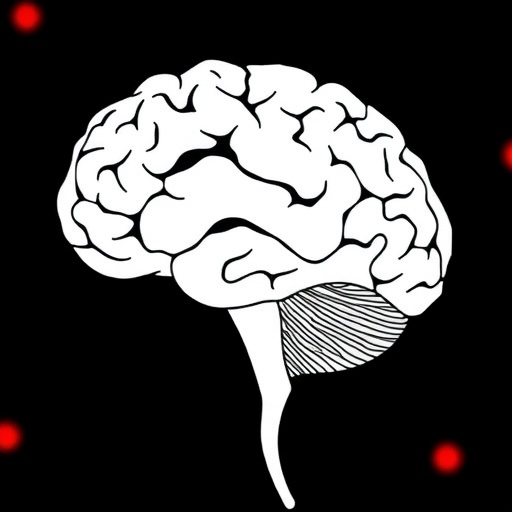The recent research spearheaded by Ren, Guan, and Guan delves into the complex and pressing issue of Alzheimer’s disease, specifically investigating the genetic underpinnings that contribute to its prevalence. Alzheimer’s disease, a neurodegenerative disorder characterized by cognitive decline and memory loss, has become a subject of increasing scientific scrutiny. This discussion centers around the role of apolipoprotein E (ApoE) ε4 allele, which has consistently emerged as a significant risk factor in the development of Alzheimer’s.
As researchers continue to unravel the intricacies of Alzheimer’s, understanding the genetic variants that predispose individuals to this condition has become paramount. The study presents a comprehensive meta-analysis that synthesizes previous research findings to establish a clearer picture of how the ApoE ε4 allele influences Alzheimer’s disease risk. This analysis is particularly crucial, given the increasing global incidence of Alzheimer’s, which is projected to rise sharply as populations age.
The ApoE gene exists in multiple allelic forms, with the ε4 variant being distinctly associated with an increased risk of Alzheimer’s among carriers. A higher prevalence of amyloid plaques and neurofibrillary tangles in the brains of those with the ε4 allele has been observed, and this accumulation is often linked to the cognitive decline seen in Alzheimer’s patients. Understanding this genetic connection offers profound implications for early detection and preventive strategies for individuals at higher genetic risk.
Moreover, the study emphasizes the significant variability in Alzheimer’s disease presentation among ε4 carriers. Not everyone with the ε4 variant will develop Alzheimer’s, highlighting the need for further studies to explore the interplay of other genetic, environmental, and lifestyle factors. The multifaceted nature of Alzheimer’s implies that while the genetic predisposition plays a critical role, it is not the sole determinant, and understanding this complexity is vital for future therapeutic interventions.
In addition to assessing the risk associated with the ApoE ε4 allele, the study discusses the importance of lifestyle factors in modulating this risk. Emerging evidence suggests that engaging in cognitive exercises, maintaining physical health, and fostering social connections can potentially mitigate the risk for those genetically predisposed to Alzheimer’s. This holistic perspective reinforces the notion that genetics does not operate in a vacuum and includes a broader context of individual health and lifestyle choices.
The findings from the meta-analysis are particularly encouraging regarding the potential for genetic testing. As healthcare systems evolve, there is an increasing emphasis on personalized medicine, which tailors treatment and preventive measures based on an individual’s genetic profile. Knowing a person’s ApoE status could empower healthcare providers and patients alike, enabling targeted interventions that may slow cognitive decline and enhance quality of life.
However, the complexities of ethical considerations surrounding genetic testing raise essential questions that require careful deliberation. How should individuals be counseled when faced with knowledge of their genetic risks? Moreover, ensuring that genetic information is not misused or leads to discrimination remains a pressing concern for healthcare practitioners and policymakers. Therefore, alongside advancing scientific knowledge, it is equally paramount for institutions to establish robust frameworks that protect individuals’ rights and privacy.
The study notably draws attention to the potential for developing therapies that target the ApoE ε4 pathway. As research progresses, novel therapeutic options could arise focusing on enhancing the mechanisms of ApoE’s functionality or countering its adverse effects. By elucidating the pathological role of ApoE ε4 in Alzheimer’s, scientists lay essential groundwork for drug development, paving the way for breakthroughs that can alter the trajectory of the disease.
Furthermore, this meta-analysis underscores the importance of early interventions. With the recognition that Alzheimer’s starts years before clinical symptoms appear, identifying individuals at risk through genetic testing opens avenues for preventative strategies. Initiatives such as brain health education, cognitive training, and lifestyle modification can be implemented as early interventions aiming to delay or prevent onset.
Additionally, the findings may refine the current diagnostic criteria for Alzheimer’s disease, taking into account Apolipoprotein E status as a critical marker. This adjustment could lead to more timely diagnoses, facilitating earlier treatment options that could significantly influence patient outcomes. The interplay between genetic markers and clinical practices heralds a new era in geriatric medicine, where precision becomes key to tackling diseases that have long eluded effective management.
As awareness of genetic factors like the ApoE ε4 allele spreads, public education becomes especially crucial. Raising consciousness about the implications of carrying such genetic variants is essential to foster informed decision-making in communities. Engaging with the public through educational programs could help destigmatize genetic testing and empower families to make proactive health choices.
In conclusion, this meta-analysis spearheaded by Ren, Guan, and Guan represents a significant advance in understanding the complexities of Alzheimer’s disease in light of genetic risk factors. The insights gleaned shed light on both the genetic predispositions and the influence of lifestyle factors, underscoring a need for integrative approaches to prevention and treatment. As research progresses, the potential for changes in clinical practice and public health initiatives becomes an exciting frontier, one with the promise of useful strategies in combating Alzheimer’s disease.
Subject of Research: The association between apolipoprotein E ε4 status and the risk of Alzheimer’s disease.
Article Title: Correction to: Association between apolipoprotein E Ε4 status and the risk of Alzheimer’s disease: a meta-analysis.
Article References:
Ren, Z., Guan, Z., Guan, Q. et al. Correction to: Association between apolipoprotein E Ε4 status and the risk of Alzheimer’s disease: a meta-analysis. BMC Neurosci 26, 32 (2025). https://doi.org/10.1186/s12868-025-00952-w
Image Credits: AI Generated
DOI:
Keywords: Alzheimer’s disease, apolipoprotein E ε4, genetic risk factors, meta-analysis, neurodegeneration, cognitive decline, prevention, healthcare, personalized medicine, therapeutic interventions, early detection.




